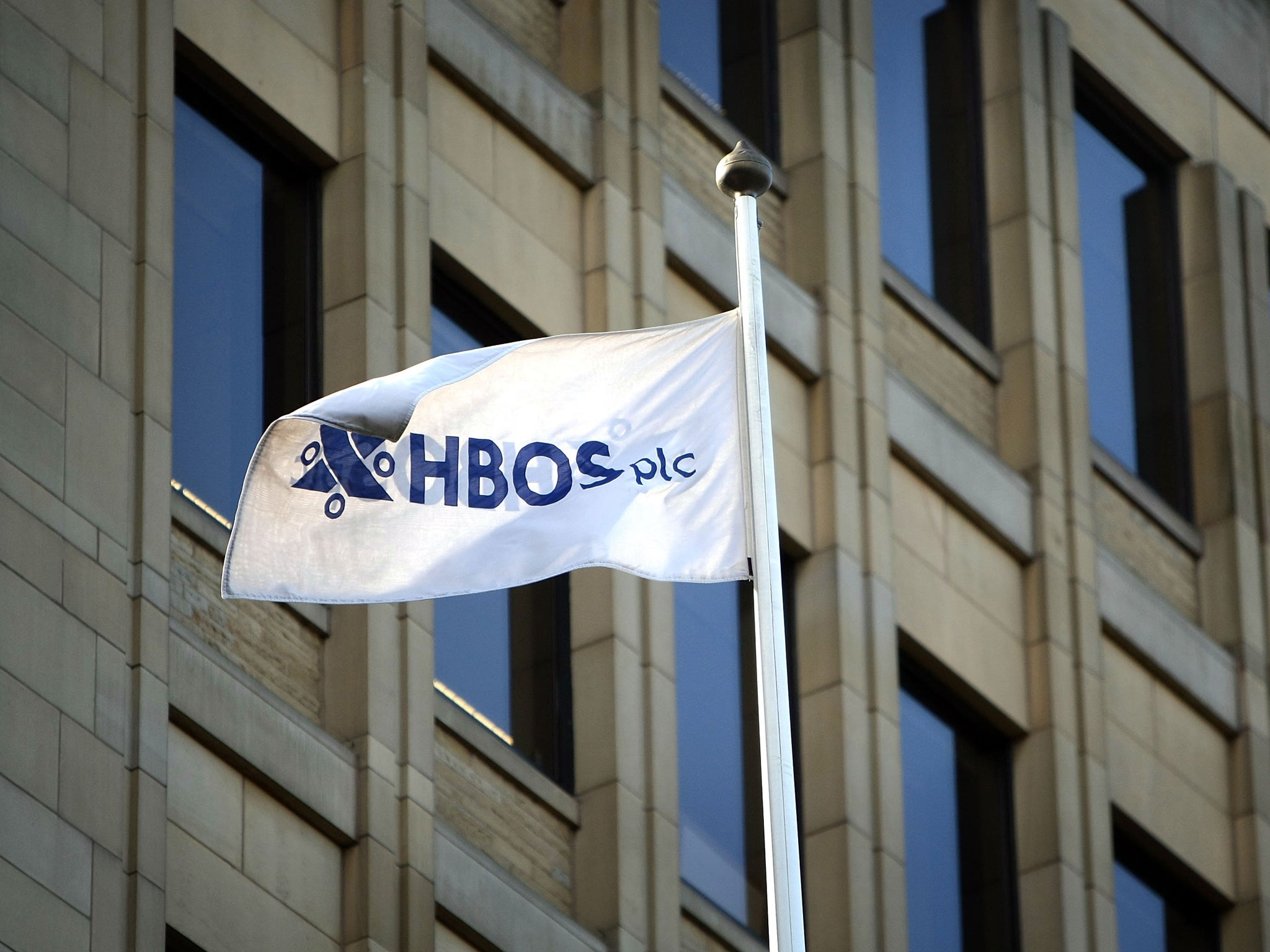HBOS collapse: Let battle commence - the regulators can’t afford to fail a second time
Outlook

Your support helps us to tell the story
From reproductive rights to climate change to Big Tech, The Independent is on the ground when the story is developing. Whether it's investigating the financials of Elon Musk's pro-Trump PAC or producing our latest documentary, 'The A Word', which shines a light on the American women fighting for reproductive rights, we know how important it is to parse out the facts from the messaging.
At such a critical moment in US history, we need reporters on the ground. Your donation allows us to keep sending journalists to speak to both sides of the story.
The Independent is trusted by Americans across the entire political spectrum. And unlike many other quality news outlets, we choose not to lock Americans out of our reporting and analysis with paywalls. We believe quality journalism should be available to everyone, paid for by those who can afford it.
Your support makes all the difference.The banking’s industry’s Chilcot inquiry? Like the report on the Iraq war, the investigation by City watchdogs into the failure of HBOS has taken a long time to reach publication.
But it is billed as a story in its introduction, so perhaps a better analogy might be The Winds of Winter.
Like George RR Martin’s latest instalment of the Game of Thrones saga, the HBOS report has been a long time coming and is of an epic length. There is also plenty of blood and guts. But will there be the deaths with which Mr Martin’s work has become synonymous? By which I mean, will readers finally get the payoff of seeing the heads of the villains rolling under the regulators’ axes?
Well, that’s the £52.6bn question – the figure revealed in the report as the extent of HBOS’s losses between 2008 and 2011.
Or how about £125bn, which was the amount of wholesale funding that needed to be refinanced at one point in 2008? That’s considerably more than the annual budget of today’s NHS.
The language in which the report was written couldn’t be further from Mr Martin’s. It is, in fact, an exercise in chilly official blandness, perhaps in part because half of London’s legal community has been over it. But when you consider what it is you are reading, the implications and the stinging criticisms levelled, the blood does flow.
The non-executive directors who supervised the bosses who created this horror show were certainly wounded enough by it to issue a statement accusing its authors of relying on hindsight. They also trotted out the increasingly threadbare argument that no one could have predicted the financial crisis that did for HBOS.
Maybe so, but the deficiencies in the bank’s business model, first highlighted by the Treasury Committee’s “An Accident Waiting to Happen”, are all too clear. The committee’s missive was well named.
Which brings us back to the question of those axes. Separate work by Andrew Green, QC, published in parallel with the report, lambasts the enforcement actions (or lack of) taken by the Financial Services Authority – a regulator whose reputation could hardly have sunk much lower after a mea culpa for equally egregious failures with regard to Royal Bank of Scotland.
Mr Green sharply criticises a decision- making process that led only to Peter Cummings – HBOS’s head of corporate who was fined £500,000 and banned from the City – facing enforcement action.
And he recommends that the FSA’s successors – the Financial Conduct Authority and the Prudential Regulation Authority– consider whether any other former senior managers and directors should now face similar bans.
The credibility of both bodies would be shattered if they fail a second time. A former senior FSA official told Mr Green that “the most culpable people were let off”. Interestingly, that is exactly what Mr Cummings said in the wake of his penalty.
He chose not to challenge it. His former colleagues have made it rather clear they are likely to fight. So be it. Let battle be joined.
While the PRA boss Andrew Bailey has made no promises, at least work under way. A decision will be made within months, rather than years.
If only that were so for the other bodies that have found themselves a part of this bruising narrative. First there is the Department for Business, which will now come under pressure to bring actions of its own against at least some of the players, with a view to possible disqualification as directors.
Then there is the Financial Reporting Council, the accountancy profession’s watchdog, which had said there was no grounds to take any action against KPMG, HBOS’s auditor – and was still saying that in response to the publication of the report, “unless it contains new evidence”.
So here are some more of those figures. KPMG signed off accounts showing a £5.5bn profit in 2007 that just a year later had turned into an £11bn loss. During that year (2008), impairments of £1.3bn recognised at the half-year had somehow turned into £12bn by year-end. How did an auditor allow this to happen? How did the auditor’s regulator believe this was acceptable?
It isn’t just the financial regulators that should be feeling the winds of winter unless the questions raised by these reports are answered. And quickly.
Join our commenting forum
Join thought-provoking conversations, follow other Independent readers and see their replies
Comments